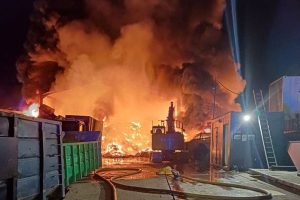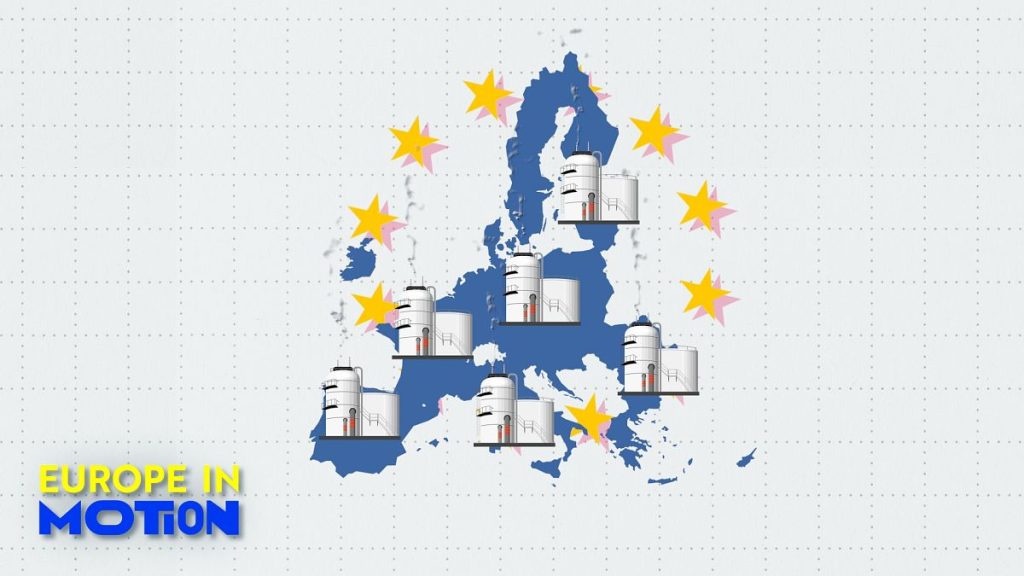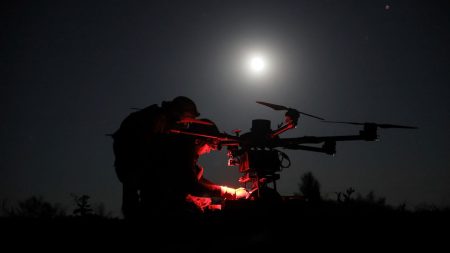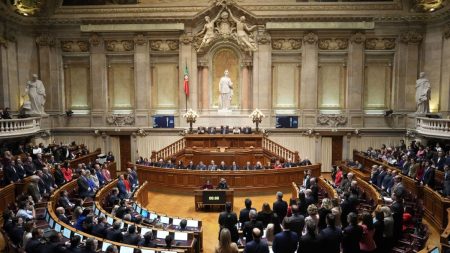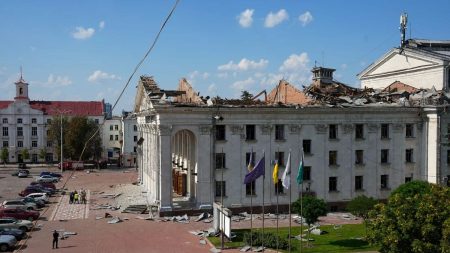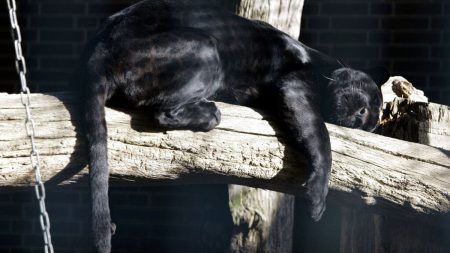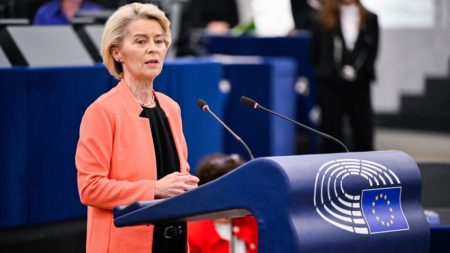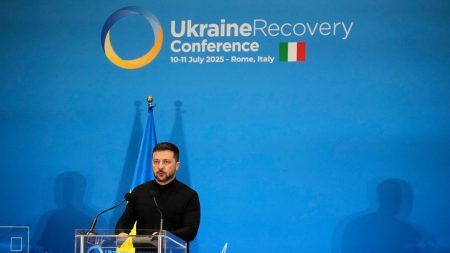The European Union’s gas supply security is facing a complex and evolving situation, characterized by a delicate balance between dwindling reserves, diversification efforts, and political tensions. Despite reassurances from the European Commission that gas supplies are secure, the current storage levels present a concerning picture. As of the start of 2024, EU gas stockpiles hold 16% less gas than at the beginning of 2023, a significant drop that raises questions about the bloc’s preparedness for potential disruptions or increased demand during colder periods. This decline comes against the backdrop of a broader geopolitical shift away from Russian gas, a major historical source for the EU. While the Commission emphasizes the success of diversification efforts and the utilization of existing storage, the lower reserves highlight the vulnerability of the EU’s energy security.
The distribution of gas storage across EU member states reveals further complexities. While Portugal boasts a storage volume exceeding 100% of its capacity, this seemingly positive indicator is tempered by the fact that Portugal possesses one of the smallest total gas reserves in Europe. Countries like Sweden and Poland also maintain relatively high storage percentages, indicating a proactive approach to securing their energy needs. Conversely, the Netherlands, Croatia, and France lag behind with significantly lower storage levels, raising concerns about their ability to weather potential supply disruptions. This disparity in storage levels underscores the uneven distribution of resources and preparedness across the bloc, highlighting the need for greater cooperation and coordination in managing gas supplies.
The suspension of Russian gas flows through Ukraine adds another layer of complexity to the EU’s energy security landscape. Historically, Russia supplied nearly 40% of the EU’s natural gas through pipelines, making the bloc heavily reliant on this source. The ongoing conflict between Russia and Ukraine has drastically altered this dynamic, forcing the EU to seek alternative supply routes and accelerate its transition to other energy sources. While the Commission asserts that alternative routes have been secured, the reduction in overall storage levels suggests that the transition is still ongoing and vulnerabilities remain. The reliance on withdrawals from storage to supplement supply further emphasizes the precarious nature of the current situation.
The European Commission’s assertion that gas supplies are secure is based on a combination of factors, including the diversification of supply routes, the utilization of existing storage, and the claim that current storage levels are slightly above the historical average for this time of year. However, comparing the current storage levels to those of the previous year reveals a significant decline, indicating that the EU’s gas security margin has eroded. The Commission’s emphasis on the average storage level for this time of year arguably downplays the significance of the year-over-year decline and the potential risks associated with lower reserves.
The reactions of individual EU member states to the evolving gas supply situation further complicate the picture. Countries like Slovakia, Hungary, and Austria have continued to rely on Russian pipeline gas, even after the invasion of Ukraine. Their dependence on the Ukrainian transit route, which has now been suspended, highlights the challenges faced by some member states in rapidly diversifying their energy sources. Slovakia’s open criticism of Ukraine’s decision not to renew the transit contract and the accompanying threats to cut electricity flows to Ukraine and reduce aid for Ukrainian refugees underscore the political tensions arising from the gas supply crisis. This internal discord within the EU threatens to undermine the bloc’s collective efforts to secure its energy future.
In conclusion, the EU’s gas supply situation is characterized by a complex interplay of factors, including dwindling reserves, diversification efforts, political tensions, and varying levels of preparedness among member states. While the European Commission maintains that gas supplies are secure, the data suggests a more precarious reality. The significant decline in storage levels compared to the previous year, the ongoing reliance on withdrawals from storage, and the uneven distribution of reserves across member states all point to underlying vulnerabilities. The political tensions arising from the gas supply crisis, as exemplified by Slovakia’s reaction to the suspension of the Ukrainian transit route, further complicate the EU’s efforts to navigate this challenging landscape. The long-term security of the EU’s gas supply hinges on the successful diversification of sources, increased investment in storage capacity, and greater cooperation among member states in managing and sharing resources.
